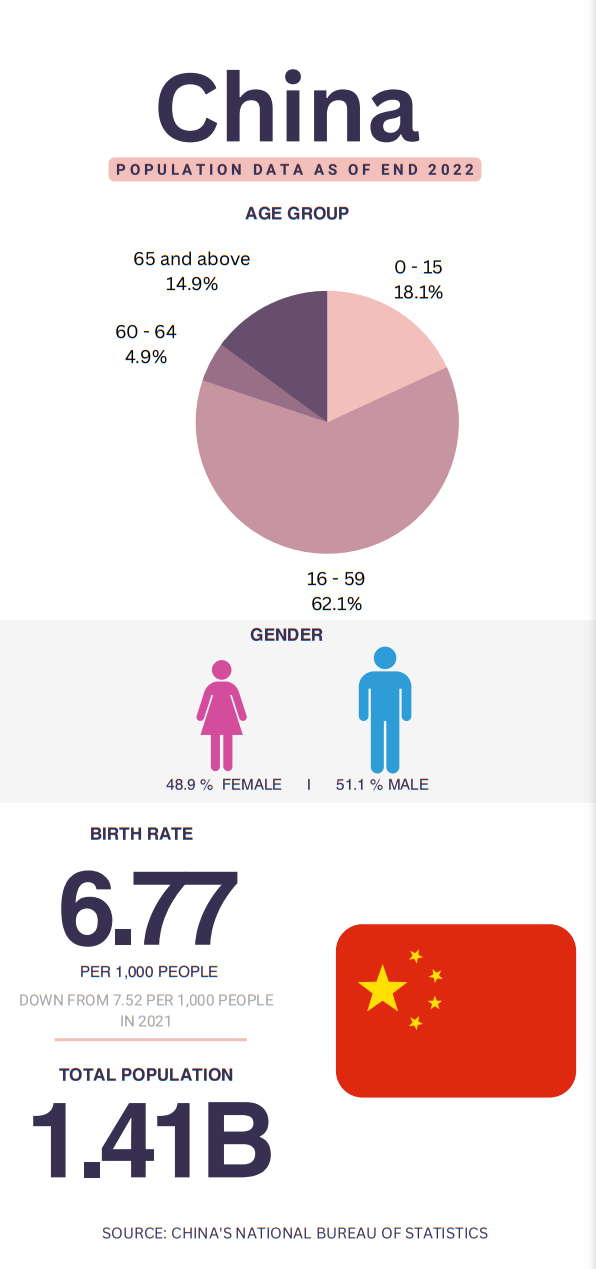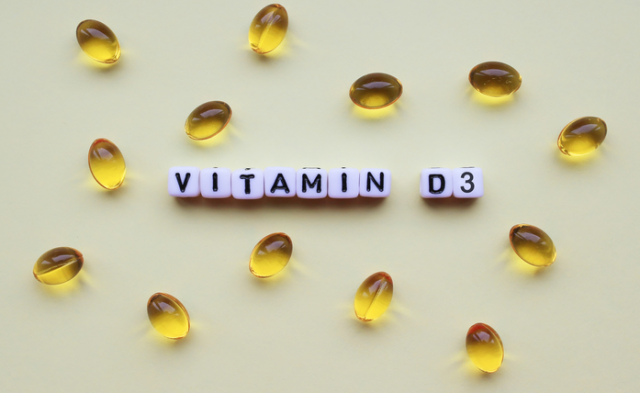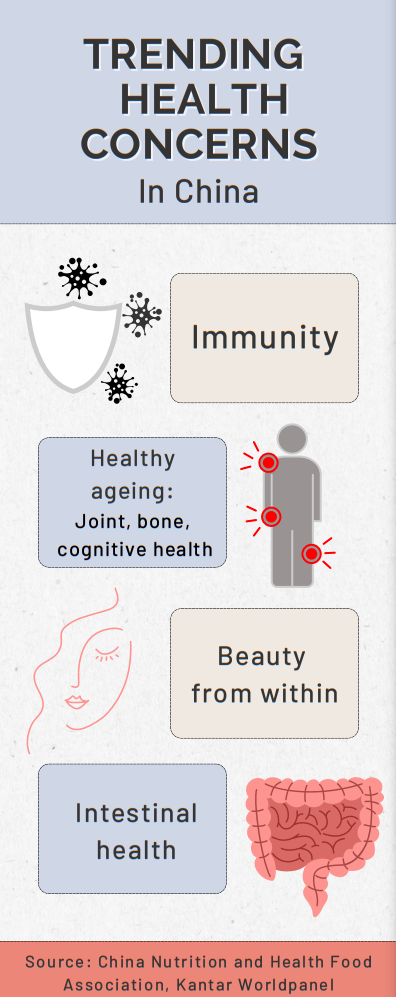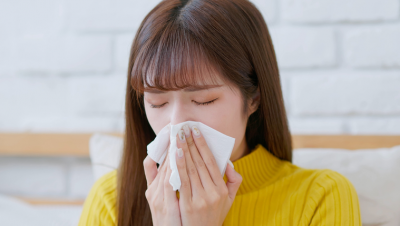VitamINSIGHTS
Exclusive China analysis: Consumers spending cautiously but supplement sector holding up well

China’s health supplement market is currently valued at approximately RMB$400bn (US$5.6bn) and has been growing “at a stable rate”, Zhang Zhong Peng, secretary general at China Nutrition and Health Food Association (CNHFA) said.
However, consumers are taking a more rational and cautious approach in their spending of health supplements after coming out of the COVID-19 pandemic.
This sentiment is also reflected in several other industries.
On July 30, Bloomberg reported that Chinese consumers have largely tightened their budget but were still willing to spend on travel and restaurants.
A few days prior on July 26, Xinhua also reported that China’s economy is facing challenges arising “from insufficient domestic demand, difficulties in the operation of some enterprises, risk and hidden dangers in key areas, as well as a grim and complex external environment,” the China local media summarised based on a meeting held by the Political Bureau of the Communist Party of China (CPC) Central Committee.
Low consumer demand and private investment could put the country at a risk of deflation Financial Times reported. Deflation – where demand and prices of goods are declining – could lead to the domino effect of lesser income for producers, downsizing of firms, and eventually recession.
The Chinese government have dished out on Monday (July 31) measures ranging from subsidies for new cars and home renovation materials to stimulate spending.
Some consumers lack confidence and have many concerns.
- Li Chunlin, vice chairman of the National Development and Reform Commission said during a press conference held on July 31
Source: The New York Times
In the realm of health supplements, Zhang said that Chinese consumers have become more disciplined in their spending.
“In the first half of the year, it seems that consumer demand has shrunk. Across the board, spending has reduced, but the impact is more visible in other industries, such as fashion and apparels…For other sectors such as food services and restaurants, there have been clear signs of recovery.
“The nutrition and health sector is also experiencing some impacts but to a lesser extent. It’s unlike the pre-COVID era when the mentality was to spend what is earned. But after going through the pandemic for three years, the mentality these days is to save more for the rainy days…People are now more selective on what they spend on,” said Zhang.
In this series of VitamINSIGHTS, we take a closer look at how China’s health supplement industry is faring vis-a-vis other FMCG industries, the types of health supplements of interest to the consumers, and prospects for growth through interviews with CNHFA, market research firm Kantar Worldpanel, as well as China’s second largest health foods exporting country – Australia.
Part I: Health over beauty
Chinese consumers are still more willing to spend on health supplements instead of beauty and personal care products, although fears of the pandemic have subsided and social activities resumed, says Jason Yu, managing director of Kantar Worldpanel.
Between January and May this year, health supplements sales growth in China was up 23 per cent based on year-to-date basis.
Consumers are also leaning to healthier food and beverage options.
For instance, sugar free beverages are driving growth in the ready-to-drink (RTD) category, while 100 per cent NFC (Not From Concentrate) is leading growth in the juice category, which indicated that consumers have become more conscious of its nutritional values, he said.
Electrolytes drink is another category bringing growth.
“These products are associated to the sports activities that consumers are increasingly taking part in,” he said.
Watch Yu explain more about the consumer trends in health supplements and healthier beverage sector.
Beauty and personal care sectors, on the other hand, are seeing a rebound but have not yet returned to the pre-COVID period, according to Yu.
“Health supplements sales are definitely doing better. The beauty and personal care sector is just starting to rebound this year, because the demand for beauty products was very much depressed during the past two to three years since people are locked at home and don’t really go out for their social lives.
“This year, we saw that some of those categories like hairstyling, shampoo, and conditioning have started to come back, but nonetheless, they have not yet returned to growth seen in the pre-COVID period.
“Categories like fragrance, skincare etc are moving towards a more positive trajectory but again, they hadn't really rebounded fast.
“Overall, when choosing between health and beauty, it seemed that consumers in China today would opt more for health than beauty. The beauty industry will take some time to recover to its full speed,” he said.
As such, he believes that it is crucial for companies to ride on the demand for health and wellness products.
“The general observation is that despite China coming out of COVID-19 [restrictions] into a more normalised period, we still see that consumers are willing to spend more money on more health-oriented FMCGs, and directly in health supplements, which is growing at quite a decent speed.
“I would say that health and wellness is here to stay, and it is really important for a lot of companies and brands to continue to play in this space.”
Part II: China’s health supplements market outlook remains positive – second largest exporter
Australia, the second largest exporter of health supplements to China, is of the view that China’s health supplement sector is still poised for growth.
In fact, the country’s export of complementary products, including dietary supplements, herbal medicines, fish oil, and glucosamine had grown 16 per cent between year 2021 and 2022, said Miho Kikuchi, industry development manager at trade body Complementary Medicines Australia (CMA).
The US is the largest health supplements exporter to China.
“I think our sector, the health supplement sector, is one of the rare and fortunate industries which hasn't been impacted [by reduced consumer spending] in China. We are still seeing strong demand for health products in China.
“Statistically, we can also demonstrate how well our sector is growing. The vitamin dietary supplement market on e-commerce platforms in China, for example, grew by 26 per cent for the last 12 months, which is quite amazing.
“I have also checked with some of the CMA members who export their products to China and all of them got back to me saying that they haven’t been affected [by reduced consumer spending] in China at all, and their business in the China market is growing,” she said.
She acknowledged that there was a significant drop in exports between 2020 and 2021 due to COVID-19 related supply chain disruption.
“From 2021 to 2022, we started picking up and we expect the figure for 2022 to 2023 to be even better.”
Last year, the total import and export volume of China’s nutritional and health foods was over US$9 bn.
Of which, the import volume was up 14.6 per cent yoy and reached nearly US$6 bn. Australia accounted for US$824m, which was 14 per cent of the total import volume, she said.
“You can see that the health supplement industry in China is doing really well. As such, China is still the largest and most important market for our sector.
“With the borders open now between Australia and China, at CMA, there are lots of things happening and we are organising lots of exciting events with China,” she said, adding that CMA would be organising the Australian pavilion at Healthplex Expo to be held in Shanghai next year.
Several members have secured an exhibition spot, which she said was also a sign of strong interest in the China market despite geopolitical tensions between the two countries in recent years.
Zhang, on the other hand, has raised concerns on how the declining Chinese yuan could affect imports.
“The Chinese yuan is declining and this is not beneficial for imports,” he said.
In June, it was reported that China’s yuan had slumped to six-month lows against the dollar. As of August 1, the yuan is pegged at RMB$7.1521 to a dollar, Reuters reported.
Part III: Consumers paying more attention to beauty-from-within, joint, eye, heart health post pandemic
Post pandemic, beauty-from-within, joint, cardiovascular, and eye health have become the trending categories in China, although demand for immunity remains stable, said Zhang and Yu.
Ingredients wise, vitamins and minerals, as well as probiotics are still the largest categories.
“Last year, there were information circulating online on how contracting covid-19 could affect heart health, and hence coenzyme Q10 products have gained attention.
“However, vitamins, including multivitamins, as well as probiotics are still the major categories. These are the main categories anywhere else in the world and occupy a large portion of the health supplement sector,” said Zhang.
Single vitamin products, such as vitamin D and vitamin C are typically more than popular than multivitamins in China, said Yu.
He added that fish oil, co-enzyme Q10, and lutein have delivered “decent growth” in the first half of this year.
Australia’s exports to China, on the other hand, were mainly vitamin and mineral supplements, glucosamine, fish oil, grape seed, and lactoferrin, said Kikuchi, citing Chinese customs data.
At the same time, the three interviewees are seeing market opportunities for health supplements supporting mental and emotional wellness.
“Some of the health supplements are already starting to address emotional health, because ultimately, emotional health is also having an impact on your physical health as well,” said Yu.
“Due to this prolonged lockdown in China and also increased uncertainty around the future, I think people are beginning to realise the importance of mental health and understand the strong connections between physical and mental health.
“And so I see that examples such as supplements for calming the mood or insomnia, are also getting very popular as well,” said Kikuchi.
Functions and ingredients aside, Yu noticed that premium brands, such as the likes of Swisse, direct-seller Infinitus, Amway, and local brand leader BYHEALTH, were the key drivers of supplement sales growth.
At the same time, new emerging brands are competing for a slice of the pie, he said, referring to brands such as WonderLab, whose core product is probiotic.
Another strong contender is MoveFree by Reckitt Benckiser, whose sales grew by 145 per cent.
“WonderLab didn't really exist two or three years ago, but it is now occupying almost 0.7 per cent of the total health foods market,” he said, adding that sales for the brand have grown 256 per cent versus the previous year.
“I will say that when we're looking at the rising star players in the last two or three years, there have been a lot of those imported products and new emerging Chinese brands that are playing in the premium price sector,” he said.
There is also a tendency for the older population to prefer foreign brands, but this is not necessary the case for younger consumers, said Zhang.
“Some of the older consumers would think that products from the US or economically developed countries are better than those from China.
“However, based on my survey, the younger generation does not feel this way. They will still look at the ingredients, the formulation, brand history, and control over quality. This means that they are more rational in their selection.
“China has a relatively late start in the health supplement industry. Some overseas brands might already have over a hundred year of history or have been in the market since the 70s and 80s, and so older Chinese consumers could better relate to these brands,” he said.
In recent years, there has been a wave of ‘China chic’ (国潮) across a range of consumer goods industries, including cosmetics. These domestic brands typically tap on the local Chinese culture and concepts in marketing their products and are popular with the younger crowd.
Zhang said that the wave could work to the advantage of domestic brands, as they could tap on local culture and develop unique narratives for their products.
“Some local brands have tapped on traditional culture or the concept of traditional Chinese medicine, and so, they could develop some unique narratives behind their products.”
Part IV: Online supplement sales could outgrow offline performance but picking the most suitable sale channel is key
Online supplement sales are fast catching up with offline sales, with the former representing about 43 per cent of the total supplement sales value, and the latter at 57 per cent, according to Kantar Worldpanel.
“In the recent year, I will say that most of the brands have been doing really well online. The traditional specialty shops or brick-and-mortar stores are not doing as well.
“In e-commerce, which basically means the direct-to-consumer e-commerce and all the other e-commerce platforms, including social commerce, has been growing really well.
“Because of the speed of growth, I think in the next two years, online is definitely going to overtake offline as the largest purchase channel for the Chinese consumers,” said Yu.
Another expert also echoed the importance of sales channel, especially in the case of the booming healthy ageing category.
Jane Li, founder and principal consultant at New Zealand’s Li, Page & Co, and has experience advising local infant formula firms interested in the China market, believes that the sales channels adopted would determine its failure or success.
“Regardless of how amazing the product is and how many new ingredients are added to it, how do you take your amazing product to consumer and get them to open their wallet is the most crucial thing.
“Otherwise, your product is worthless. If you can't sell your product, if you can’t monetise it, then it is essentially worthless,” she said.
Using the infant formula industry as an example, she said that the sector thrived because a dedicated and mature channel has been developed all over the country to sell the product – in this case, the mother-and-baby stores.
She believes the same logic could be applied to the sale of healthy ageing products, as consumers typically associate supermarkets and pharmacies with the purchase of grocery and medicines.
E-commerce platforms, especially livestreaming sessions, are inundated with “everything under the sun” and it would be hard to engage consumers on a specific niche category in the long run.
“The elderly will probably not shop online for a long time. They trust offline. They want to see the product. They want to see people, be accompanied, and they want to be served.
“The only possible channel at the moment for elderly health products are very targeted, human resource intensive channels. It’s basically a direct-selling, one-to-one sale model where the salesperson only focuses on selling the product in his/her own city,” she said.






















